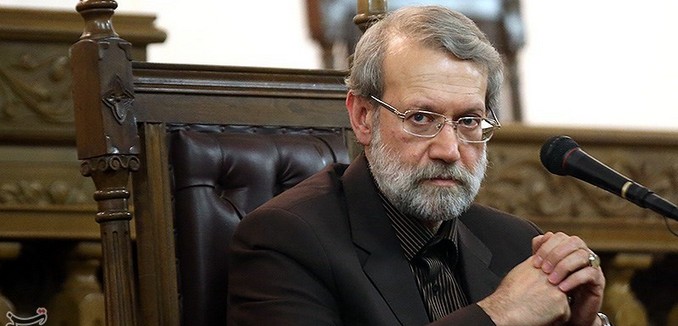Iran is claiming that recent sanctions imposed on its ballistic missile program by the United States violate the 2015 nuclear deal, even though the administration of former President Barack Obama repeatedly stressed that the accord only freed Iran from nuclear-related sanctions, Reuters reported Tuesday.
“Iran’s JCPOA supervisory body assessed the new U.S. sanctions and decided that they contradict parts of the nuclear deal,” Iran’s speaker of parliament, Ali Larijani, told the Tasnim news agency. Larijani added that Iran would take its complaint to the commission that monitors compliance with the deal, which is formally known as the Joint Comprehensive Plan of Actions (JCPOA).
Iranian media also reported that Tehran was planning on adopting retaliatory measures in response to the sanctions, which would be announced shortly to relevant ministries by President Hassan Rouhani.
On Friday, the United States Treasury Department designated six Iranian entities for their role in supporting Iran’s ballistic missile program. That day, the U.S. Senate also passed sanctions legislation targeting Russia, North Korea, and Iran with a veto-proof majority. President Donald Trump signed the sanctions bill into law on Wednesday.
Contrary to Iranian objections over the newly imposed sanctions, at a Senate hearing in July 2015, then Secretary of State John Kerry was emphatic that Iran agreed that the nuclear deal would not bar Washington from imposing and maintaining non-nuclear sanctions against it. He said:
They are clear and we are clear that we have all other kinds of authorities, and let me be specific on that, because it’s important for this whole debate to be clear. Even with the lifting of sanctions after eight years on missiles or five year on arms are the UN sanctions. It’s only the UN sanctions. We still have sanctions. Our primary embargo is still in place. We are still sanctioning them.
The Obama White House also explained that the nuclear deal would not prevent Washington from countering Iran’s missile program:
… we have strong multilateral and unilateral tools, including sanctions, to continue to restrict Iranian conventional arms and missile-related transfers. We have strong support from the international community on these issues.
That combined with the size of the U.S. economy, the power of our financial system, and the reach of U.S. unilateral measures gives us enormous leverage to work with other countries to enforce restrictions on Iranian missile and arms activity.
According to the Corker-Cardin bill, which passed in May 2015, the president has to certify Iran’s compliance with the nuclear deal and “any related agreements” every 90 days. United Nations Security Council Resolution 2231, which codified the JCPOA, called on Iran “not to undertake any activity related to ballistic missiles designed to be capable of delivering nuclear weapons, including launches.” State Department spokesperson Heather Nauert stated last week that the U.S. considered Iran’s ballistic missile launches to be “a violation of UNSCR 2231.”
[Photo: Tasnim News ]




